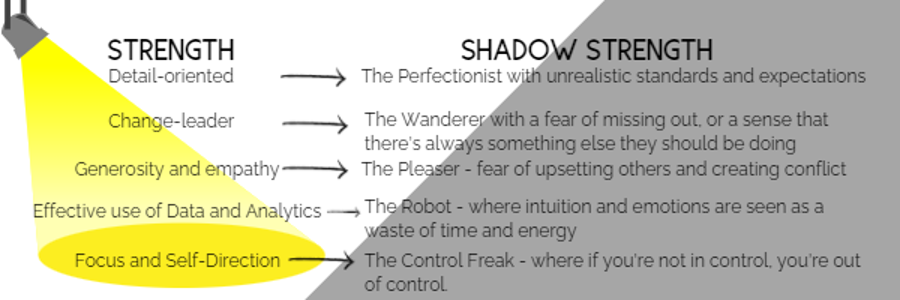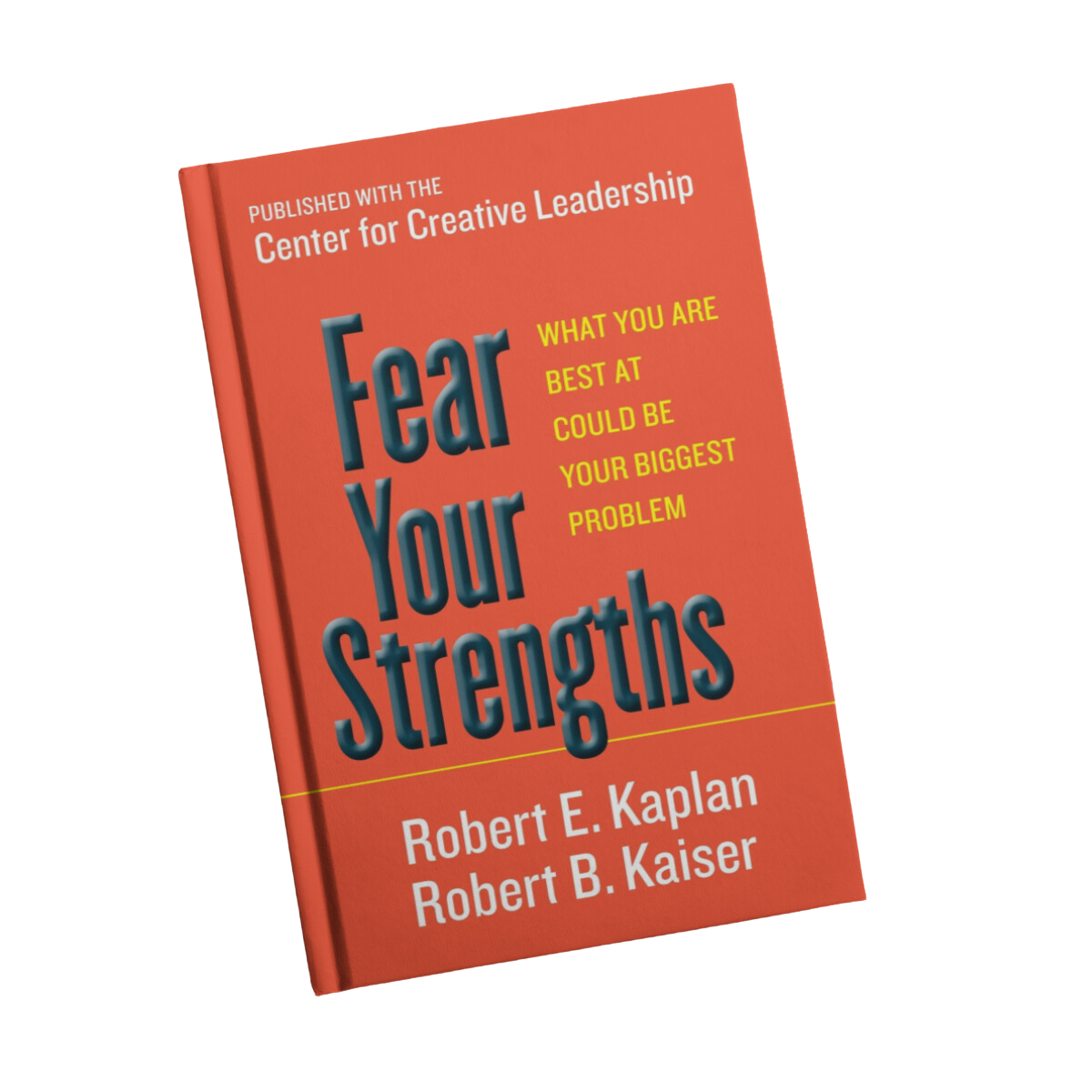
"I suppose it is tempting, if the only tool you have is a hammer, to treat everything as if it were a nail."
~ Abraham Maslow
Leveraging great self-awareness tools like our very own Whole-Mind Manager can help you to connect with your strengths and identify your development opportunities as a leader and influencer. Knowing, and effectively leveraging, your strengths is key to unlocking your full potential. There is, however, a risk that if you lean too heavily on your strengths, then they become what we call ‘Shadow Strengths’ – essentially strengths overdone.
Take for example a common strength found in high potentials – attention to detail. Being a detail-oriented person can allow you to do great work, as both an individual contributor and manager. Dotting the proverbial I’s and crossing the T’s means that work gets delivered to a high standard every time, minimizing mistakes and reducing risk. You’ll often be recognized and rewarded for that strength, encouraging you to do more of it, and to use it in more and more situations.
However, if you lean too heavily on that strength, it can become its shadow strength – ‘Perfectionism’. Perfectionism is a heavy burden and comes with a heavy cost – both in terms of the time taken in the pursuit of the (mythical) perfect, but also the energy expended as you go beyond the normal level of effort from ‘good enough’ to ‘too good’. While attention to detail can be very helpful, perfectionism is a common source of missed deadlines, protracted processes, and burnout. Perfectionism is the enemy of innovation. Individual contributors with Perfectionism will find themselves working long hours, sacrificing other commitments along the way. Managers with Perfectionism will drive their teams to despair, and often to the exit.
Here are a few examples of strengths and their shadowy counterparts. See where you recognize yourself in this list.

We could go on (there’s a shadow strength for every strength out there), but you get the point. As you progress in your career, you will need to continually self-manage your strengths to keep them in control, channeling their energy in the right direction and ensuring they’re applied in the right context: For example, being detail-oriented in the final sprint before a major release vs being a perfectionist during the exploration stage of a new product innovation.
If you’re not sure whether you’re indulging your shadow strengths, take a look at where most of your time and energy goes, and what the return on that investment is for you, your team, or your organization. It will be the place you’re most often getting in your own way. It will, however, come with its own self-justifying voice (the Saboteur) which will do a great job of convincing you that it’s an entirely appropriate use of your time and energy, so remember, we’re here for you if and when you want to harness your strengths without limiting your potential.
This week’s inquiry…
Which shadow strength is holding you back?
Dive Deeper…
Adam Grant and Marcus Buckingham share their perspectives on ‘shadow strengths’ in this three minute must-watch conversation.
“What we’re talking about here is intelligence; you can use your strengths unintelligently.”
Sometimes, more is NOT better. In this groundbreaking book, nationally recognized leadership experts Bob Kaplan and Rob Kaiser draw on their data and experience to identify four fundamental leadership qualities, which, if overemphasized, can seriously compromise leadership effectiveness. They share practical tips to help leaders calibrate their performance to make sure their strengths don’t overpower them, but rather move them —and their organization—forward.


